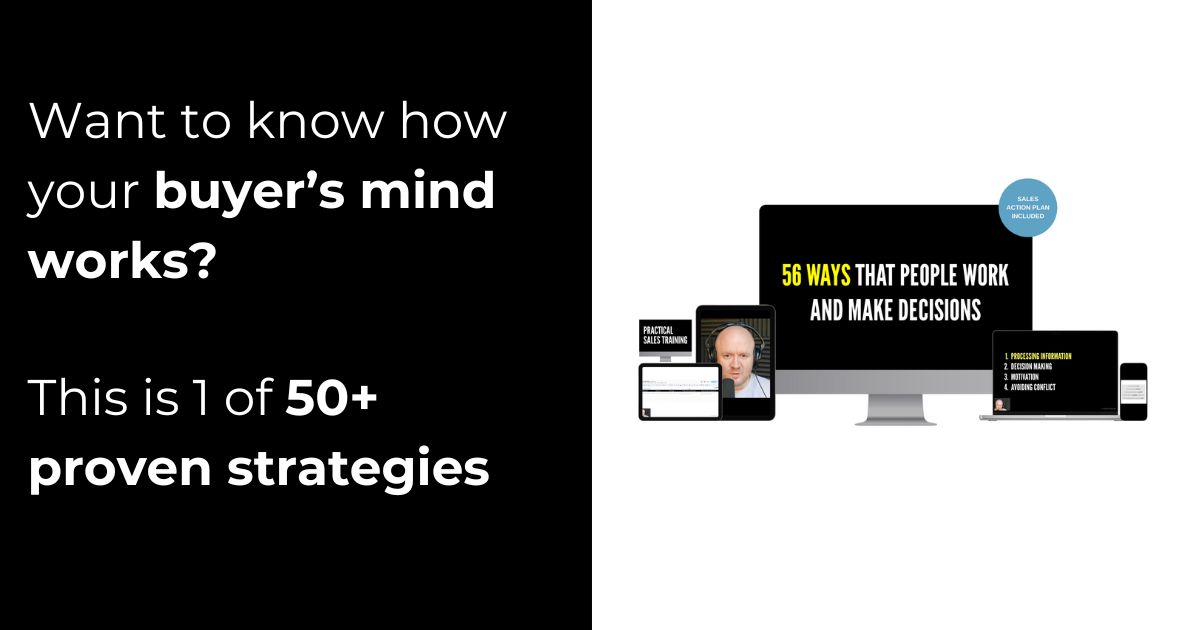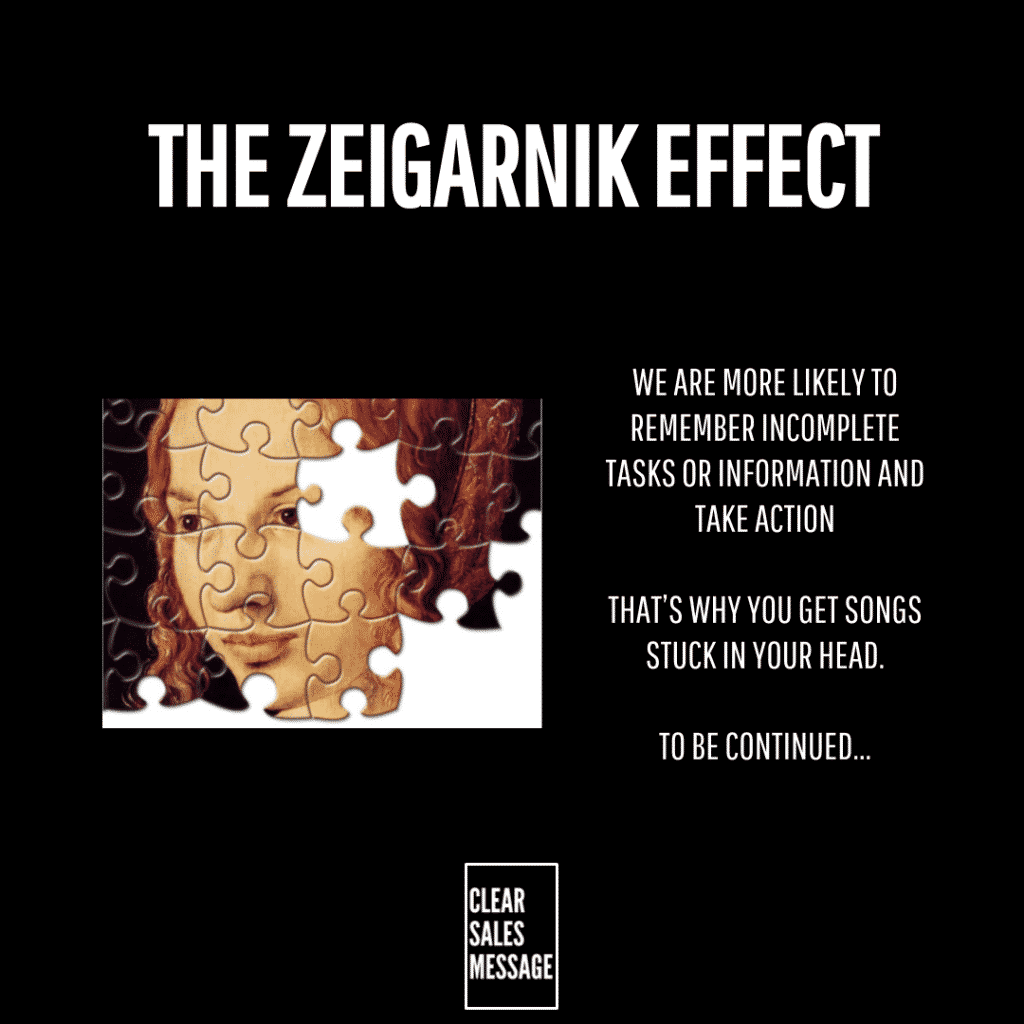Practical Sales Training™ > How People Work > The Zeigarnik Effect
What is it?
If you’ve ever had a song stay in your head for the day and weren’t sure why then you have experienced the Zeigarnik Effect. We are more likely to remember uncompleted or interrupted tasks better than completed tasks. You only heard part of that song which means it’s “incomplete” and thus it stays in mind (and you have an urge to hear the song in full).
Why does it work?
It works because our minds are literally “wired” to recall incomplete things. This also explains how waiters and waitresses can recall the orders for the tables they are serving, but once the party leave they forget much of what was ordered.
How can you use it?
The Zeigarnik effect can be used to help create intrigue and engagement in clients – much like using information gaps.
How could you allude to your product or service and present some of the information pertaining to your offering? Could you stagger the information you present to create desire and intrigue over time?
How could you also think about..
Hypothetical Example:
A course creator launches a free video series about improving sales techniques. In the first video, they say:
“There are 5 powerful steps to closing more deals. Today, I’ll share the first 3 – and the last 2 are what make everything really work.”
Viewers are left with a sense of incompleteness – they know there’s more to learn and feel compelled to sign up for the full course to discover the remaining steps.
This works because the incomplete information triggers the Zeigarnik Effect, keeping the content front-of-mind and motivating buyers to seek closure.
See also



